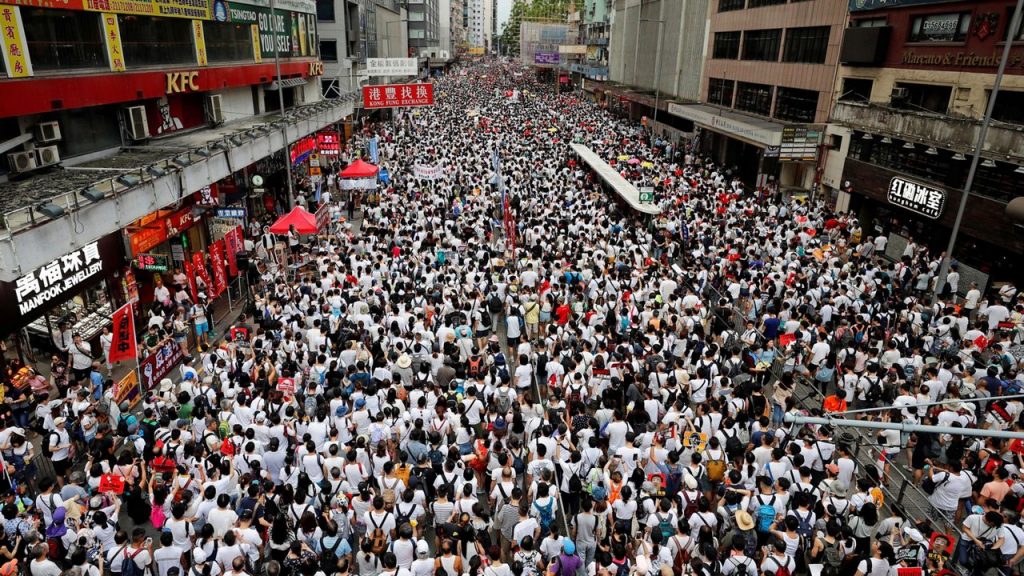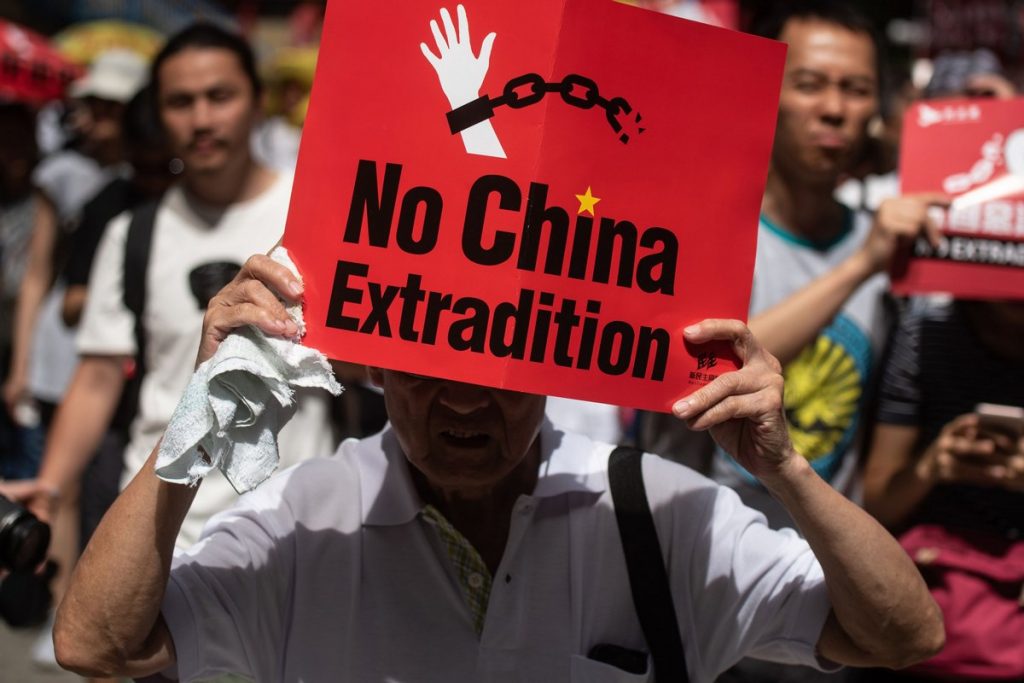Hundreds of thousands of people have marched in Hong Kong against a law critics fear could let China target political opponents in the territory.
The controversial extradition bill would allow suspected criminals to be sent to mainland China for trial.
The government says the bill has built-in protections and will plug loopholes.
Organizers say there were one million protesters, which would make it the biggest march since the 1997 handover. Police say 240,000 were at their peak.

Hong Kong’s leader Carrie Lam has pushed for the amendments to be passed before July. Supporters say safeguards are in place to prevent anyone facing religious or political persecution from being extradited to mainland China.
But critics say those in the former British colony would be exposed to China’s deeply flawed justice system, and it would lead to further erosion of the city’s judicial independence.
Protesters, marching in the sweltering heat dressed in white, included a wide range of people – from businesspeople and lawyers to students, pro-democracy figures and religious groups. The march was mainly peaceful though pepper spray was used against some protesters.
The figures given by organizers and police vary because of the different methods they use to calculate the crowds – while organizers estimate overall numbers police look at how many people were gathered at one peak.
Reacting to the protest, a government spokesman said in a statement the proposals were “firmly grounded in the rule of law” and that the second reading of the bill at the Legislative Council would resume on Wednesday.
It looked like a regular protest in Hong Kong: a peaceful and orderly march. People helped each other out. They fanned for each other, helped push the wheelchairs. Water refill stations had been set up by volunteers, too.
But this march ended up as the biggest in Hong Kong, not just since the Umbrella Movement in 2014, but since the city’s handover to Beijing in 1997. The city’s pro-democracy movement has been hard hit since Umbrella because protesters failed to gain any concessions from the government after they occupied the heart of the city for 79 days.
The numbers on the latest march will certainly boost the morale of the pro-democracy groups, but many protesters are not optimistic that the government will back down now. After all, the pro-Beijing parties enjoy a majority in the legislature.
The government insists it will resume the bill’s second reading. Some protesters have already vowed to sit in out there.
The changes will allow for extradition requests from authorities in mainland China, Taiwan and Macau for suspects accused of criminal wrongdoing such as murder and rape.
The requests will then be decided on a case-by-case basis.
Hong Kong officials have said Hong Kong courts will have the final say over whether to grant such extradition requests, and suspects accused of political and religious crimes will not be extradited.
The government has sought to reassure the public with some concessions, including promising to only hand over fugitives for offenses carrying maximum sentences of at least seven years.
There has been a lot of public opposition, and critics say people would be subject to arbitrary detention, unfair trial and torture under China’s judicial system.
The latest proposal has come after a 19-year-old Hong Kong man allegedly murdered his 20-year-old pregnant girlfriend while they were holidaying in Taiwan together in February last year. The man fled Taiwan and returned to Hong Kong last year.

Taiwanese officials have sought help from Hong Kong authorities to extradite the man, but Hong Kong officials say they cannot comply because of the lack of an extradition agreement with Taiwan.
But the Taiwanese government has said it will not seek to extradite the murder suspect under the proposed changes and has urged Hong Kong to handle the case separately.
A former British colony, Hong Kong is semi-autonomous under the principle of “one country, two systems” after it returned to Chinese rule in 1997.
The city has its own laws and its residents enjoy civil liberties unavailable to their mainland counterparts.
Hong Kong has entered into extradition agreements with 20 countries, including the UK and the US, but no such agreements have been reached with mainland China despite ongoing negotiations in the past two decades.
Critics have attributed such failures to poor legal protection for defendants under Chinese law.
 Alghadeer TV Alghadeer TV
Alghadeer TV Alghadeer TV
